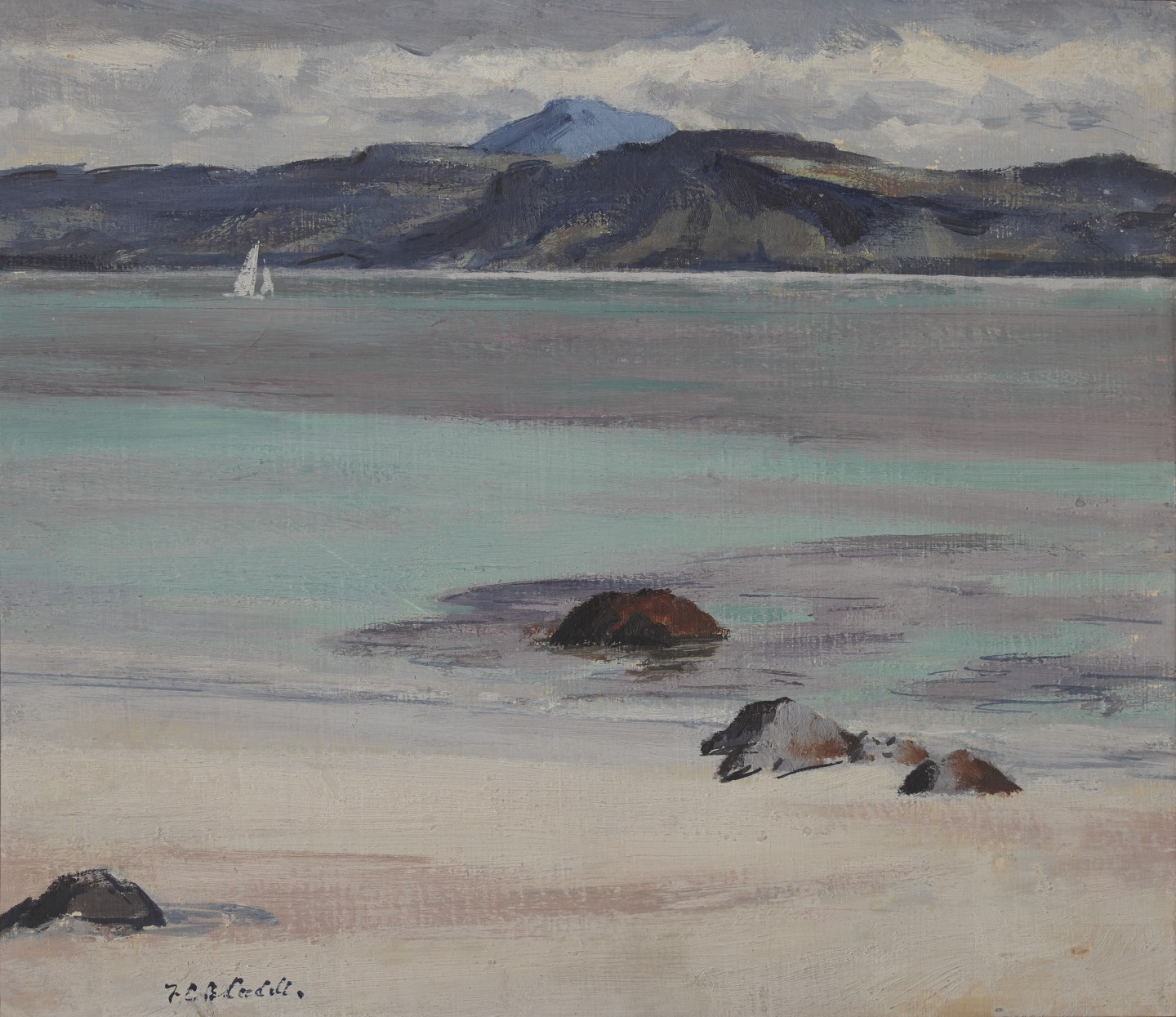DESCRIPTION
The parallels with Peploe’s Perthshire Landscape are marked particularly in the vigorous handling of the green foreground. Cadell’s depiction of unadorned nature reveals both his mastery of colour - as in the shoreline caught by sunlight – and of tone - as in the effects of light across the water and hills to create a sense of distance.
DETAILS
-
Artist
Francis Campbell Boileau Cadell
-
Date
Unknown
-
Medium
Oil on board
-
Object number
145
-
Dimensions unframed
37.5 × 45.1 cm
-
Dimensions framed
55 × 59 cm
-
Place depicted
Argyll and Bute (6457407)
-
Marks
Signed bottom left
-
Subject
ARTIST PROFILE
Francis Campbell Boileau Cadell RSA RSW, 1883-1937
Born in Edinburgh, Francis Campbell Boileau Cadell was the child of a distinguished surgeon. Brought up in the Georgian New Town, he attended Edinburgh Academy but left at sixteen to study art in Paris at the Académie Julian. The next seven years were spent either living in Paris or visiting it regularly from Edinburgh. In 1906 he capped his studies with a year at the Art Academy in Munich.
His youthful work reveals a debt to the Impressionists, taken to extremes following a revelatory trip to Venice in 1910. Back in Edinburgh, Cadell embarked on a series of swagger portraits, still-lives and interiors staged in his elegant New Town Studio which are preoccupied with the possibilities of mirrored reflections and the tonal effects of black and white in the manner of Whistler and Manet.
At the outbreak of war, Cadell’s reputation was at a peak. The youngest by almost ten years, Cadell was the only Colourist to fight in WW1 serving continuously on the Western Front and was twice wounded. Returning to Edinburgh in 1919, he brought with him Charles Oliver, who became his life-long partner and sometime model.
With Peploe’s encouragement Cadell turned to painting interiors and still lifes in planes of vivid colour and geometric forms verging on the abstract. His brilliant handling of colour was used to great effect on his annual visits to Iona, capturing the intense light refracted off the sea.
Never business-like Cadell fell prey to the collapse of the art market following the 1929 crash. He died destitute in 1937, aged 54.











